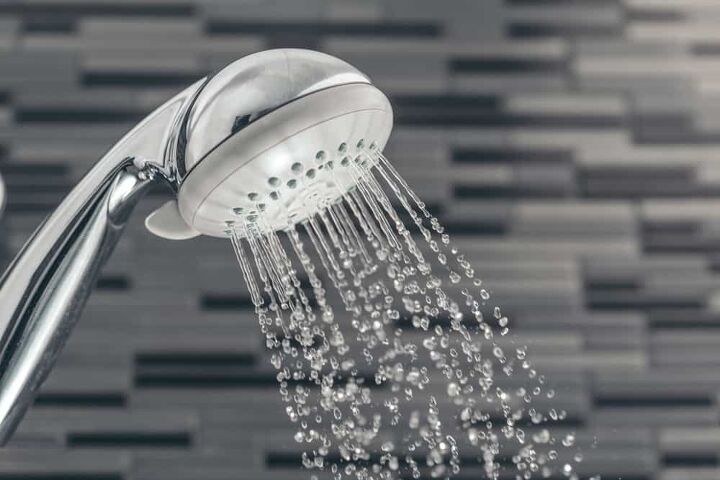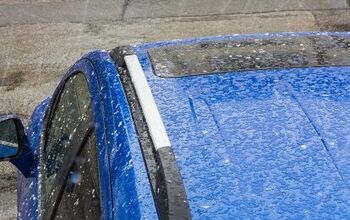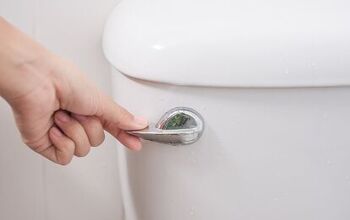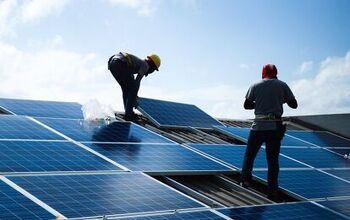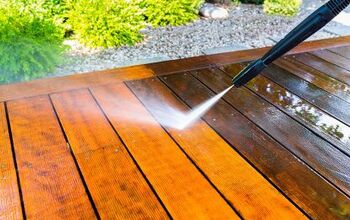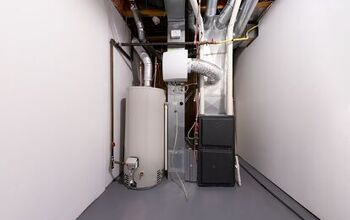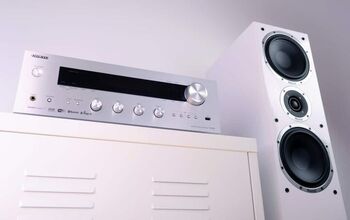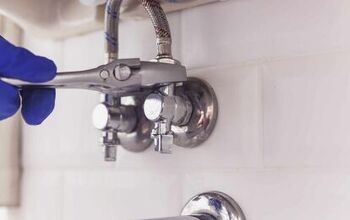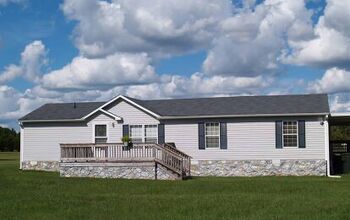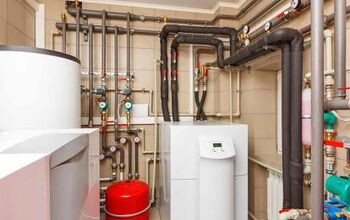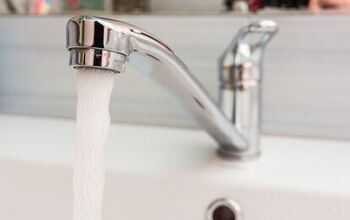Can You Shower When The Power Is Out? (Find Out Now!)

Nothing is quite as comforting as taking a quick shower, but when the weather is inclement, it can seem like a risky endeavor. We’ve all heard about having lightning hit plumbing, causing an electrocution. But, what happens if the storm is done? More importantly, what can you do if the power is already out?
Your plumbing will still work properly when the power is out, but that doesn’t mean that you will have a comfortable shower. Unfortunately, most water heating systems will not work when the power is out. They need electricity to heat the water.
Trying to take a shower after a major storm can be daunting, if not a little scary outright. Before you grab a towel, read up on what we have to say via your mobile phone.
Will My Plumbing Work When The Power Is Out?
Yes, but only partially. Assuming that the storm (or whatever it was) has finished up and didn’t harm the plumbing, you should be able to have a steady flow of water. However, there is going to be a key part that probably won’t work: the furnace. If you have a heater that’s even remotely powered by electricity, you cannot expect to get new hot water in your shower.
By the way, this is only true if you live in an individual home or a small, two-story apartment building. Taller buildings usually require an electric pump to get water going to their bathrooms. In this case, you will never be able to get the water working once the power goes out regardless of why the power went out in the first place.
Is There Any Chance I Could Get Warm Water While Showering Without Power?
Yes, but it’s not going to be very likely. In order for you to get warm water, even for a little bit, the four following things would need to be true:
- You are not the owner of a tankless water system. If you have a tank, there’s a good chance that there is still hot water from the time when the power has been turned on. On the other hand, a tankless system means that water is instantaneously heated as soon as it hits the container. This means that there won’t be any leftover water stored anywhere, ergo, no hot water available.
- The water line to your home has not been severed. Even if you have some water that has been stored up in the tank, it will not be enough for a long shower. If the waterline was severed due to a falling tree or an earthquake or something, then you probably won’t have clean water. So, you might want to skip it.
- You don’t need electricity to pump the water through your shower. If you have a steam shower, you *might* have a problem…or you might just have to switch to a traditional shower mode during this time.
- You live in a house and not a high-rise building. Most high-rise, multi-level “tower” buildings tend to have water pumps that electrically push the water up through the different stories. If you need to have your water pumped this way, then your water will stop working almost immediately after the power goes out.
How To Prevent Power Loss In Your Home
If you live in an area that’s prone to power outages, then you should strongly consider doing something to prevent power outages in your home. Obviously, you can’t control what happens to the power grid in and around your home. That leaves keeping power inside your home. The easiest way to do that is by getting a generator that is meant to run indoors.
A sturdy indoor generator can be hooked up to your water boiler, thereby giving you the best chance at having a nice, warm shower regardless of what’s going on with your grid.
Important Things To Remember When Trying To Shower With A Power Outage
Power outages and inclement weather go hand in hand. This is not the type of situation that is your typical day-to-day…or at least, it shouldn’t be. These things below are important to keep in mind if you want to shower while the power is out:
- You should never try to bathe or shower during a lightning storm. Though rare, there have been multiple cases where a badly-timed lightning strike caused an electrocution of a person bathing. Since water is a conductor, it presents a clear danger to people who are trying to take a dip. Wait until after the storm is over.
- Check to see if your water is working first. If a storm or a mudslide caused a pipe to burst, you shouldn’t try to have a shower. This will actually exacerbate and damage your plumbing. Heck, it might even damage your home.
- The warm water you *might* have won’t last very long. A shower might dump out as much as 2.5 gallons per minute. If you have a 20-gallon storage tank, be aware that you probably won’t get all 10 minutes. Thankfully, it’ll be a slow change from hot to cold in most cases.
- Try to figure out what caused the power outage first. If it’s a broken wire or thrown breaker in your house, you might be able to fix it on your own. On the other hand, if it was a city-wide short or a major weather calamity, then you might want to work on finding a different way to sanitize yourself for the time being, as you might also have water contamination as a result.
- Use common sense. If you notice discoloration in your water while you’re bathing, get out!
Should You Wait To Take A Shower?
Honestly, it’s a good idea in most cases. Most power outages will last a couple of hours at the very most, which means that a little patience will pay off with a piping hot shower at the end of the day. Obviously, this is not always the case. If you have reason to believe that the power lines are down, or that a major portion of the grid has blown, then waiting won’t do much.
The best thing you can do is try to do is to find out what caused the outage and then figure out what your options are. That way, you don’t waste water you do have and you don’t go too long without a bath.
Related Questions
Do showers use electricity?
Yes, but not in the ways that you would expect. Showers tend to use a lot of hot water quickly, which can bring up the bill from your water heater significantly. If the shower in question is a steam shower, then the issues that you’re dealing with will magnify. Steam showers take additional energy to heat the water up to a steam point, and may also have electric programming screens on the outside to help bolster their use.
How much water does a typical showerhead use?
This depends on the type of showerhead that you have. Standard showerhead builds use around 2.5 gallons per minute, while low-flow showerheads will only use two. If you have a specialty showerhead (like a high-pressure one), you might see the gallons per minute top three or four. However, that is highly unusual and shouldn’t be considered the norm.While showers use up a lot of water, they still have nothing on baths. Baths can use as much as 70 gallons for a single soak session.
Does well water still work when the power goes out?
Most people who are using water do so because they get water from municipal supplies that are hooked up via gravity-powered plumbing. Unfortunately, this is not the case for people who have wells. Modern wells use electric pumps to guide the water up to the home and through the showers.Wells also require electricity in order to heat the water, much like most standard boilers. As a result, well water is a double whammy for use during times of power outages. Not only will you be unable to get hot water, but you also won’t be able to get water to the faucet either.

Ossiana Tepfenhart is an expert writer, focusing on interior design and general home tips. Writing is her life, and it's what she does best. Her interests include art and real estate investments.
More by Ossiana Tepfenhart



